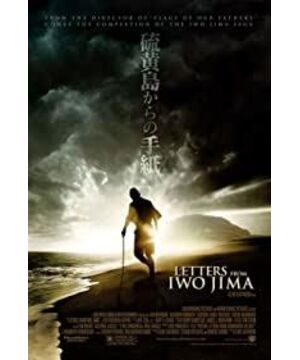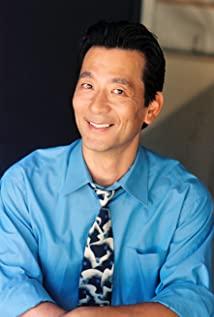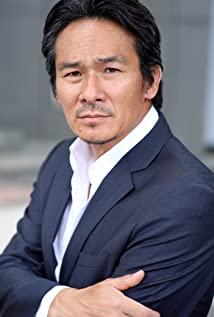As a companion piece, "The Banner of the Fathers" presents the Battle of Iwo Jima from the perspective of the US military, which is mixed with a lot of irony and rebellion against heroism; while "Letter from Iwo Jima" is narrated from the perspective of the Japanese army, with a The Japanese soldiers who were completely disappointed with the country and thought of their own lives were the clues throughout, taking care of the human nature under the war, and carried out a profound and restrained reflection and criticism of the war.
In my opinion, all wars are meaningless and anti-human. Maybe there is a difference between fascism and anti-fascism in motives, but as far as the soldiers who are fighting in the front line are concerned, the distinction between good and evil has been wiped out, no matter which side it is. , Like insignificant pawns, the right to life and death was given to the upper-level politicians and players.
And why are they fighting in a meaningless war?
There are three kinds of people on Iwo Jima. One is the pump of Japanese militarism. They have been poisoned by "patriotic" thoughts. This kind of person is the officer who committed suicide at the beginning, and the officer who was lying on the ground covered with mines and wanted to blow up the American tank. On behalf of them, they are arrogant, swear allegiance to the emperor to the death, and fight for the so-called "country". They think that the US military is cowardly, but they eventually ruined themselves. The most ironic thing is that the officer who wanted to kill the chariot finally survived and was captured by the US military. In it, we can see the director's clear intention-an indictment and irony of Japanese fascism and militarism against humanity. The second type of people is the officers who have been in contact with countries around the world, especially those who have a clear understanding of the enemy and war but firmly perform their military duties, represented by Ritsurin and Colonel Nishi, who have received Western education and even have many American friends. They did not have much hostility and hatred for the Americans, and they also recognized that the battle of Iwo Jima or even the entire war was meaningless, but they still fulfilled their duty as soldiers and fought to defend the country, as Ribayashi said, they could If the U.S. military is dragged on for a while, the children in the country will have a chance to survive for a while. They may not want war in their hearts, but they have to fight bravely when they have already started. The third type of people is most of the civilians and soldiers. They have their own wives, children and lives, but they were conscripted into the army and fell into the meat grinder of war. They don’t want to fight, and they are full of despair about war. The person is represented by the protagonist Xixiang (I think he is the protagonist of the film, not only because he is the narrative thread of the film, but also the theme of the film is mainly expressed through it). Xixiang is just a baker's chef. He has a wife and a daughter who has never met at home, and he was murdered by the military police when he was at home. He was thinking about his wife and children, and was full of despair and sorrow for the war. He carefully tried to save his life in the war, and even tried to surrender. He is the portrayal of most soldiers, the world is unkind, and if Iwo Jima is the chopping block, then they are the fish to be slaughtered. So why are they fighting?
And "The Banner of the Fathers" gives the answer, for the sake of the brothers, for those who are good to themselves, and for the fresh life, the last soldiers in the banner take off their clothes and play in the sea, the light of humanity shines . American soldiers know that so-called heroes are created, they are not interested in patriotism, or they are comrades who live and die with themselves before the "country", and this is what they fight for. The same is true for Japanese soldiers. The last scene in "Letter" touched me deeply: Saigo, who had been thinking about saving his life, was madly waving a shovel at the U.S. military after the war. Lieutenant General's pistol, and Kuribayashi saved his life three times. This genuine camaraderie between people is heartwarming, and that's why they fight.
Whether it is "Letter from Iwo Jima" or "The Banner of the Fathers", they are the best war films in my eyes - the focus is not on war, but on the ugliness of war itself and the brilliance of human nature embodied in war.
Finally, I want to tell those angry youths who hate Japan, you really should watch these two films to realize how narrow your thinking is. Americans can look at that history calmly and objectively, why can't we? Whether American, Chinese or Japanese, they are first and foremost a human being, a fresh and somewhat fleshy human being. They are not cruel butchers, but sons of mothers, husbands of wives, fathers of children, skilled bakers who always smile on the street corner.
View more about Letters from Iwo Jima reviews











